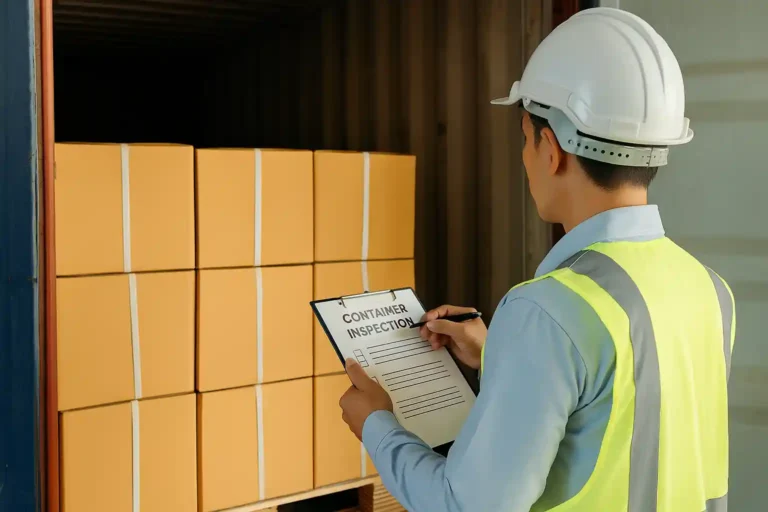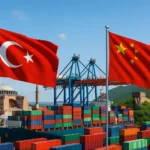In today’s fast-paced global economy, businesses aim to streamline their operations and increase efficiency. One critical step in achieving this goal is optimizing supplier networks. The process of supplier search in Turkey offers companies an excellent opportunity to establish a reliable, cost-effective, and flexible supply chain across various industries. You can also visit our “Blog” page to explore our other content.
1. Why Supplier Search in Turkey Matters
Turkey sits at the crossroads of Europe and Asia. This unique location grants unmatched logistics access to international markets. Also, the country’s inclusion in the EU Customs Union eliminates trade barriers, which simplifies export and import processes.
Furthermore, Turkey has a robust manufacturing sector. With advanced production capabilities and modern infrastructure, local suppliers can support high-volume demands while offering custom solutions. The country also maintains lower minimum order quantities compared to Asian markets. As a result, supplier partnerships become more agile and scalable.
The depreciation of the Turkish Lira has further incentivized local manufacturers to seek foreign clients. Many companies actively pursue international collaborations, resulting in competitive pricing and strong customer service.
2. Sectoral Advantages of Supplier Search in Turkey
Supplier search in Turkey benefits a wide range of sectors. The country ranks among the top global producers in automotive, machinery, textiles, plastics, steel, and agriculture.
- Automotive: Turkey is the world’s 15th and Europe’s 5th largest automotive producer.
- Machinery: The 4th largest export sector in Turkey. Over 16,000 machinery companies operate locally.
- Textile: Textile and ready-to-wear exports account for 16% of total national exports.
- Plastic and Paint: Turkey ranks 2nd in plastic and 5th in paint production in Europe.
- Steel: It’s the world’s 8th largest crude steel producer.
Each of these sectors offers specialized production capabilities that can serve global businesses looking for supply chain resilience.
3. Key Phases of Supplier Search in Turkey
To carry out an effective supplier search in Turkey, businesses should follow a systematic, research-driven process:
- Define Requirements: Outline detailed product specifications and selection criteria.
- Create a Long List: Identify manufacturers that align with the required technology, production capacity, and certifications.
- Conduct Prequalification: Assess capabilities, export experience, and factory infrastructure.
- Send Inquiries: Share technical documents and request quotations.
- Visit Facilities: Organize on-site inspections and direct interviews.
- Negotiate Terms: Finalize conditions, delivery schedules, and communication protocols.
- Monitor Performance: Evaluate early production samples and maintain long-term communication.
This structured approach allows companies to reduce risk and build lasting relationships with reliable Turkish suppliers.
4. Benefits of Partnering with Local Experts
Working with local professionals accelerates the supplier search in Turkey. These experts understand regional business culture and legal frameworks. Additionally, they provide accurate interpretations of technical offers and assist in complex negotiations.
Local partners support foreign buyers in:
- Translating and adapting technical documents
- Identifying hidden costs or gaps in supplier capabilities
- Facilitating smoother onboarding of selected manufacturers
Moreover, they offer flexible on-demand services, including plant visits, quality inspections, and logistics coordination.
5. Real-World Use Case: Sheet Metal Sourcing Project
A European company specializing in sheet metal processing decided to outsource production to Turkey. Rather than increasing their internal capacity, they opted for supplier search in Turkey to locate qualified vendors.
Project steps included:
- Training Turkish consultants on the client’s products and processes
- Identifying suppliers with CNC punching, welding, and laser cutting technologies
- Evaluating over 30 candidates and narrowing the list to 12
- Sending sample drawings and requesting detailed quotations
- Visiting top 3 factories and overseeing sample production
Eventually, one supplier demonstrated superior communication, quality, and pricing. The partnership expanded to include casting part sourcing as well. The client continues to work with the same supplier network.
6. Common Challenges and How to Overcome Them
While supplier search in Turkey offers significant potential, businesses may encounter obstacles such as:
- Language and communication barriers
- Inconsistent documentation standards
- Legal and compliance complexities
However, most challenges can be mitigated by working with experienced consultants. Additionally, investing time in building mutual trust and understanding ensures smoother collaboration.
7. Post-Sourcing Support and Long-Term Gains
Effective sourcing doesn’t end with the first shipment. Successful partnerships require ongoing monitoring, communication, and continuous improvement.
After selecting a supplier, companies benefit from:
- Routine follow-ups on production quality and deadlines
- Periodic evaluations of performance and delivery consistency
- Transparent pricing reviews
Over time, these efforts foster stable supply chains. This becomes even more valuable during global disruptions or demand spikes.
8. How Supplier Search in Turkey Drives Competitive Advantage
Companies that leverage supplier search in Turkey can significantly improve operational efficiency. They lower procurement costs while accessing custom manufacturing solutions. This makes their supply chains more flexible and resilient.
Moreover, many Turkish suppliers prioritize innovation and partnership. They adopt modern technologies and comply with international quality standards. As a result, foreign businesses can achieve long-term gains with minimal risk.
Businesses that act now will enjoy a first-mover advantage. They’ll secure top suppliers and build robust systems before competition intensifies.








